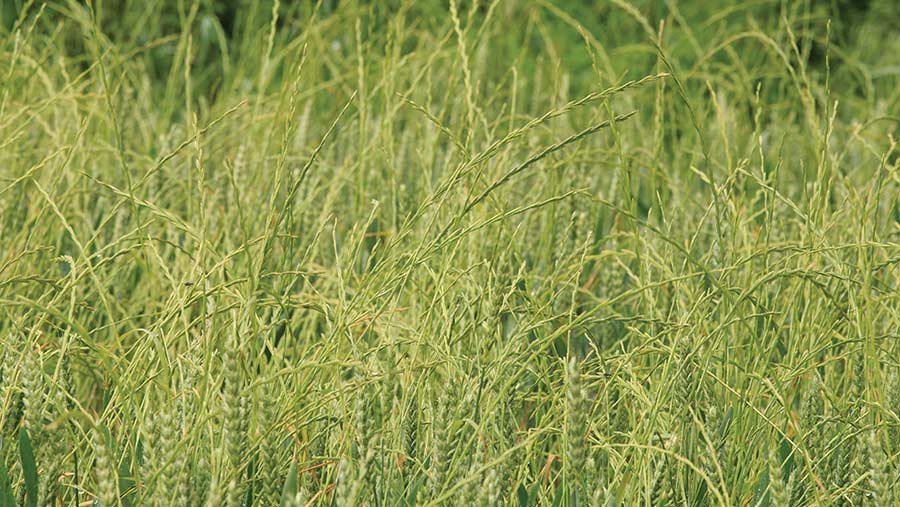Can blackgrass cultural measures also tackle ryegrass?
 © Tim Scrivener
© Tim Scrivener Early findings suggest that cultural measures for managing blackgrass are also effective against ryegrass.
Agrii has just started the fourth season of a trial on a North Yorkshire farm near York with a ryegrass problem to gain a better understanding of why it is such a problem and how to manage it.
Agrii trials manager Steve Corbet says the starting point was to see if the findings from the blackgrass trials at Stow Longa in Cambrideshire can help manage ryegrass.
See also: Why brome is a rising problem when tackling blackgrass
He looked at combinations of different cultivations (plough, min-till and min-till plus low disturbance leg) and winter crops (winter wheat and barley).
The first finding is that reset ploughing saw low levels of ryegrass, just like blackgrass. And if you plough again the following year, you get it back as old seed is brought back up.
Plots that have been min-tilled for the three years have high levels of the weed, too.
“So, yes, it’s like blackgrass in that cultural practices do affect it in the same way and crop competition is important.”
But what is different is that 100 ears/sq m can take out the whole crop, “so it is much more of a bully”.
Steve recalls that the sandy, silt soil had a poor structure and suffered waterlogging. “Plant roots were struggling while the ryegrass was happy.”
A subsoiler was used to crack the compaction and the field is no longer sat ponded. “Now we have some plots with 0s and 1s/sq m so are getting the bully under control.”
The results have also prompted changes on the wider farm with the switch to a 6m Weaving direct drill and the use of a He-Va low disturbance leg helping with soil structure.
The leg added 0.5t/ha to the average yield in min-till in the trial, although ploughing gave the highest yield.
Another big change has been the addition of spring barley, which is generating the highest margin of £2,342/ha.
Last year, Explorer yielded 9.9t/ha compared with 9.1t/ha for Silversurfer wheat.
Spring barley offers another option for managing ryegrass and the farmer is using it to get big first wheat crops, says Steve.

